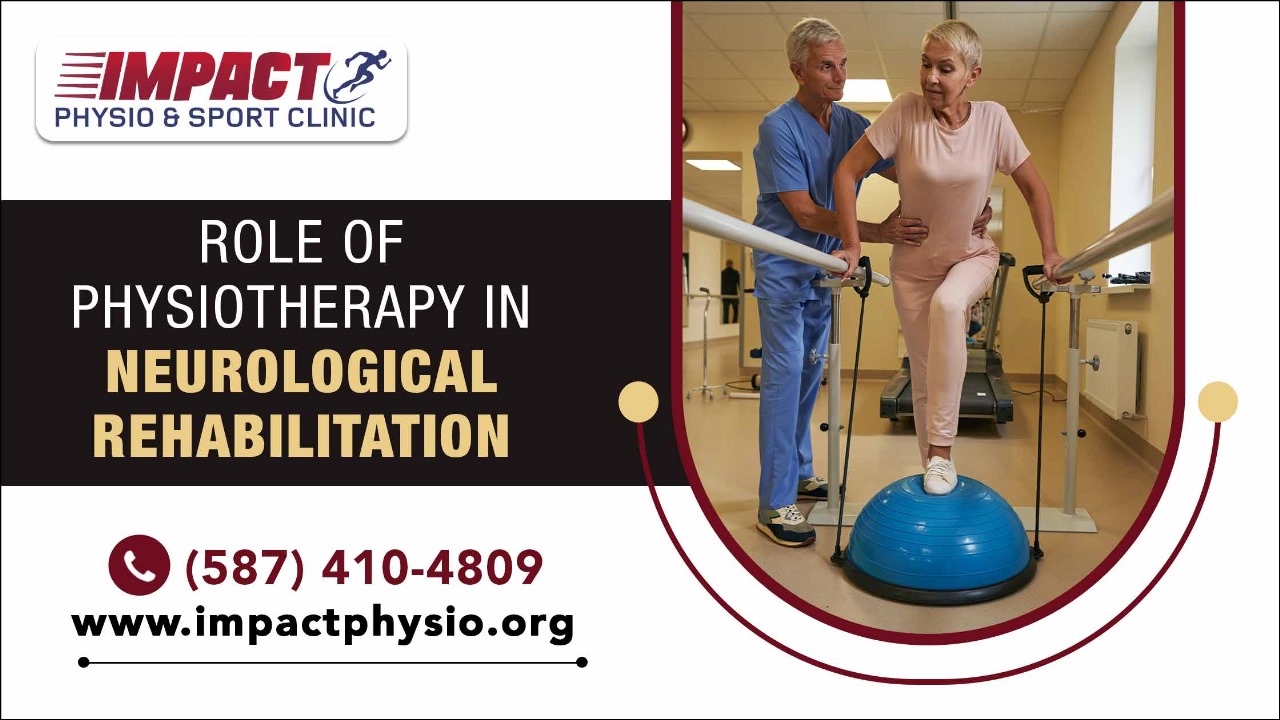Neurological disorders, whether arising from injury, illness, or degenerative conditions, can significantly impact an individual’s quality of life. These disorders often affect movement, balance, and functional capabilities, but with the advancement in medical science, there’s a beacon of hope – neurological physiotherapy. Beaumont, in particular, has been witnessing a rising demand for this specialized form of physiotherapy.
Understanding Neurological Disorders and Their Impact
Neurological disorders cover a wide range of conditions, including traumatic brain injury, stroke, Parkinson’s disease, and multiple sclerosis, among others. These conditions can lead to muscle weakness, loss of balance, impaired coordination, and diminished functional abilities. Daily tasks, which once seemed trivial, can become Herculean challenges for those affected.
Neurological Physiotherapy: A Glimpse into the Specialized Care
When individuals suffer from neurological disorders or injuries, their motor functions, balance, and coordination often get compromised. These disruptions significantly affect their quality of life, hindering daily activities and independence. Physiotherapy Beaumont plays a pivotal role in addressing these challenges, facilitating recovery through a combination of targeted exercises, techniques, and holistic approaches. Here’s how physiotherapy specifically aids those with neurological conditions:
Motor Skill Enhancement
By focusing on repetitive and task-specific training, physiotherapy helps patients regain their motor skills. This is crucial for tasks like walking, grasping objects, or even basic body movements.
Strengthening and Toning
Muscle weakness or atrophy is common in many neurological disorders. Through tailored exercises, physiotherapy strengthens weakened muscles and maintains muscle tone, preventing further deterioration.
Improving Balance and Coordination
Neurological conditions often disrupt the body’s balance and coordination mechanisms. Through balance exercises and proprioceptive training, patients can regain stability and reduce the risk of falls.
Facilitating Neuroplasticity
One of the major goals of neurological physiotherapy is to harness the brain’s ability to rewire and adapt, known as neuroplasticity. By providing consistent and targeted stimuli through exercises, therapists can promote the formation of new neural pathways, bypassing damaged areas.
Reducing Spasticity
Many neurological patients suffer from muscle spasticity, which hinders movement and causes discomfort. Physiotherapy techniques, like passive stretching and functional electrical stimulation, can alleviate this condition.
Promoting Independence
By enhancing mobility and functional capabilities, physiotherapy restores a patient’s capacity to perform daily activities independently. This boost in independence greatly improves their overall well-being and mental health.
Cognitive Rehabilitation
Some neurological conditions also affect cognitive functions like memory, attention, or problem-solving. Through various therapeutic exercises and activities, physiotherapy can aid in cognitive rehabilitation, ensuring a comprehensive approach to recovery.
Providing Psychological Support
The journey of recovery from a neurological condition can be mentally taxing. Physiotherapists often work in tandem with psychologists or counsellors, ensuring patients receive holistic care that addresses both physical and emotional aspects.
The Rehabilitation Process: Step-by-Step
- Assessment: Every patient’s needs are unique. A thorough assessment helps in charting out a personalized rehabilitation plan.
- Goal Setting: Based on the assessment, both short-term and long-term goals are established in collaboration with the patient.
- Interventions: These can include a mix of exercises, balance training, muscle strengthening, and functional training.
- Regular Monitoring: Progress is regularly assessed, and the rehabilitation plan is modified accordingly.
Innovative Techniques and Approaches
Physio Beaumont has been at the forefront of integrating innovative techniques into rehabilitation plans. From utilizing state-of-the-art equipment to harnessing technologies like virtual reality, the focus is on holistic recovery.
- Neuroplasticity-Based Training: Leveraging the brain’s inherent ability to reorganize by forming new neural connections, this approach focuses on promoting the brain’s adaptability to enhance functional recovery.
- Functional Electrical Stimulation (FES): A method that uses low-energy electrical pulses to generate body movements artificially in individuals who have been paralyzed or have muscle weakness. FES can help improve muscle strength, enhance blood circulation, and restore function.
- Virtual Reality (VR) and Augmented Reality (AR): These technologies immerse patients in a computer-generated environment where they can practice real-world movements in a controlled setting. This has proven especially useful for stroke victims or those recovering from traumatic brain injuries.
- Mirror Therapy: Often used for stroke victims, this method involves placing a mirror beside the unaffected limb, making it appear as though the affected limb is moving normally. It tricks the brain and can accelerate the recovery of movement in the affected limb.
- Neurofeedback: A type of biofeedback where real-time displays of brain activity are used to teach self-regulation. It can help improve attention, clarity, mood, and other cognitive functions, often disrupted in neurological conditions.
- Task-Specific Training: This approach centers on the repetition of “real-world” tasks rather than isolated exercises. The idea is to enhance the patient’s ability to perform daily activities, promoting independence and enhancing the quality of life.
Looking Forward with Hope
In the road ahead, neurological disorders can be life-altering, but with the right intervention and support, recovery is attainable. Physiotherapy plays a pivotal role in this journey, helping patients regain independence, confidence, and a sense of normalcy.
Neurological Physiotherapy Beaumont is more than just physical recovery; it’s about reclaiming life. With facilities like Impact Physiotherapy and the commitment of specialized therapists in Beaumont, patients have access to the best care. For anyone seeking to overcome the challenges posed by neurological disorders, physiotherapy paves the path to a brighter, more independent future.
